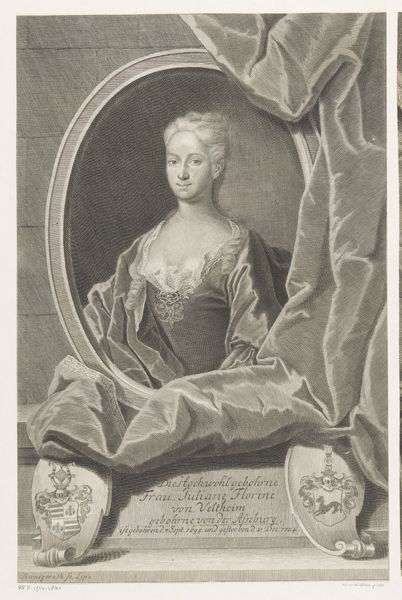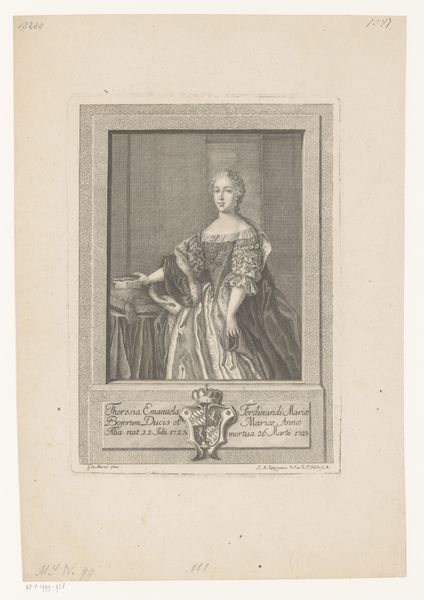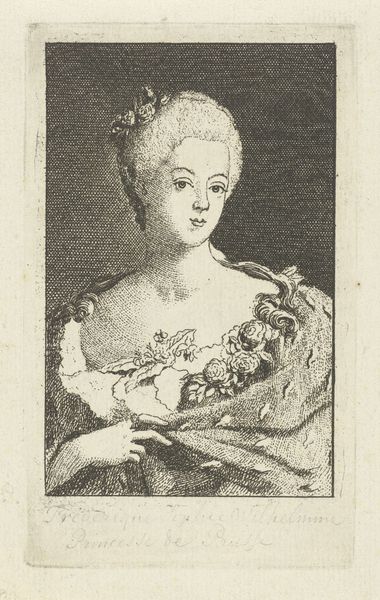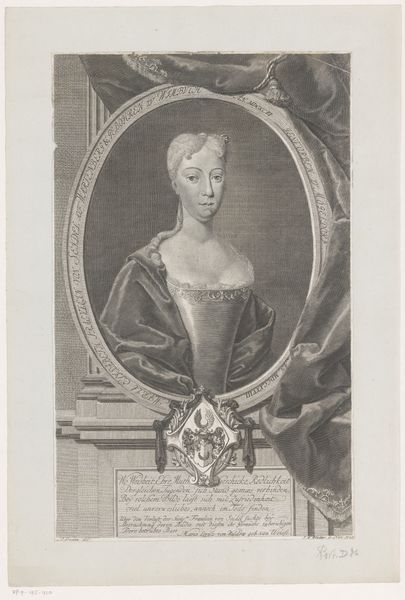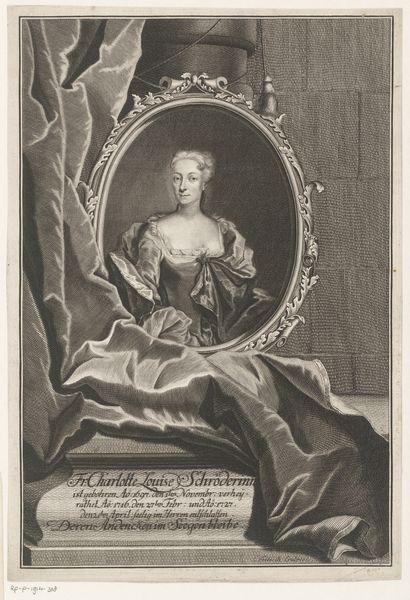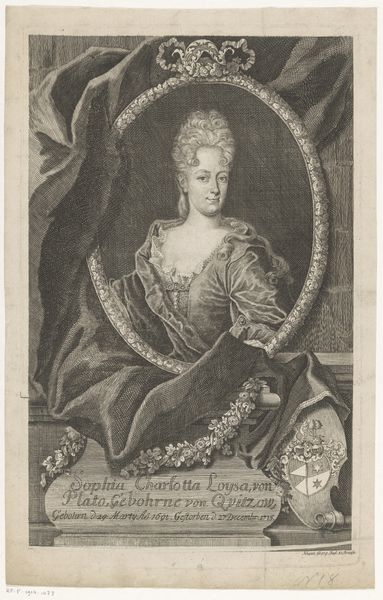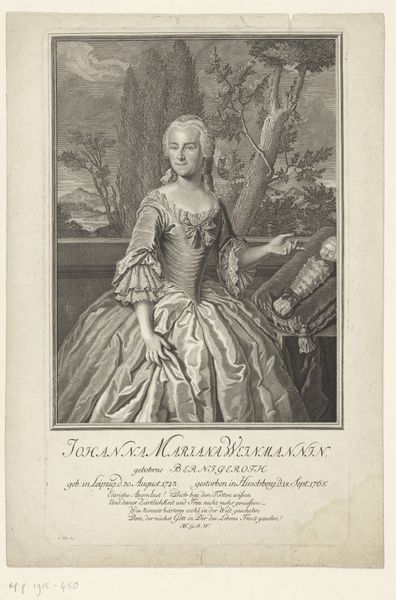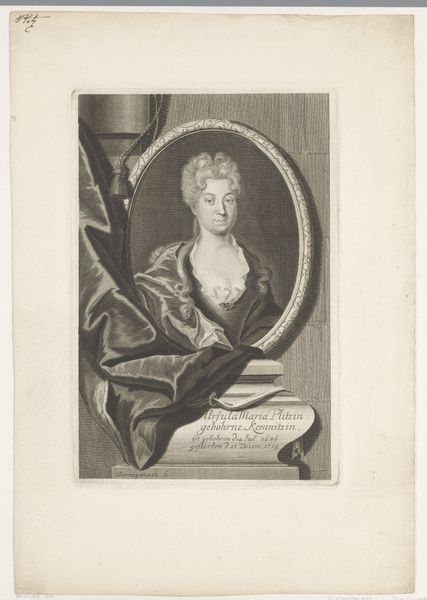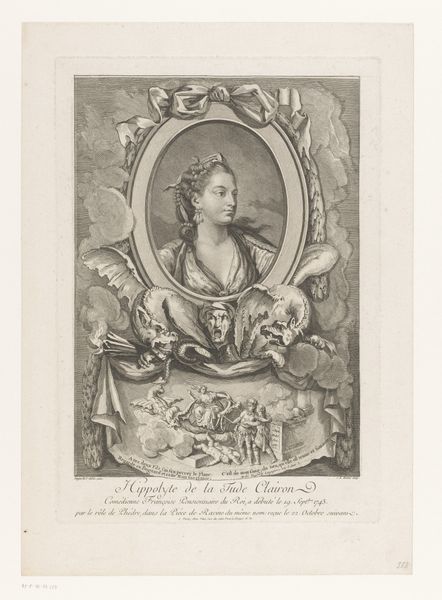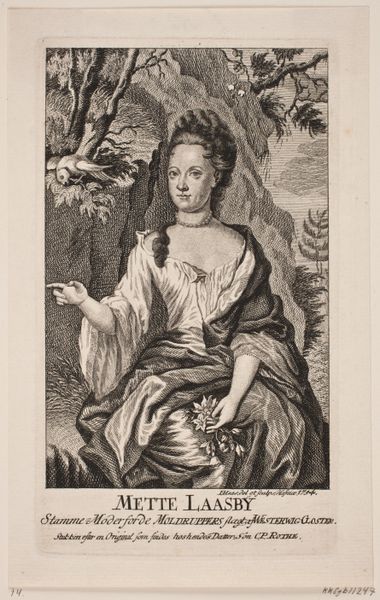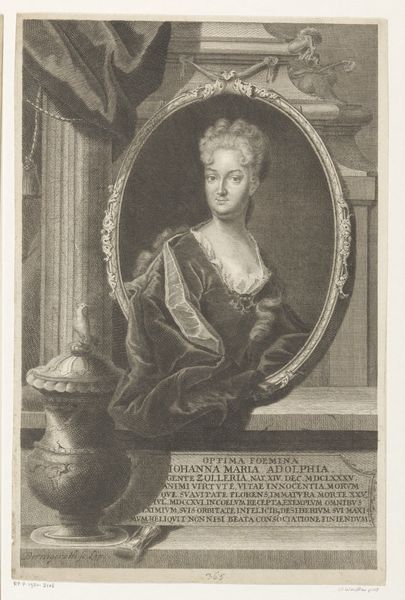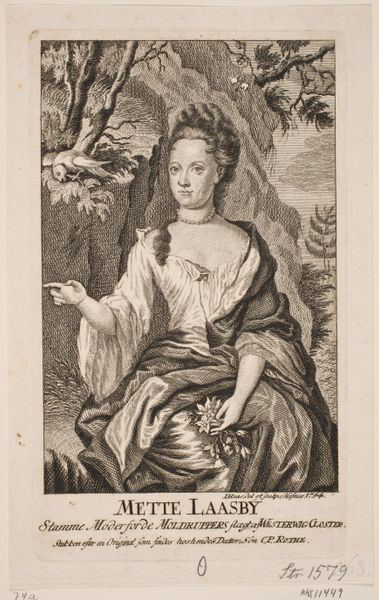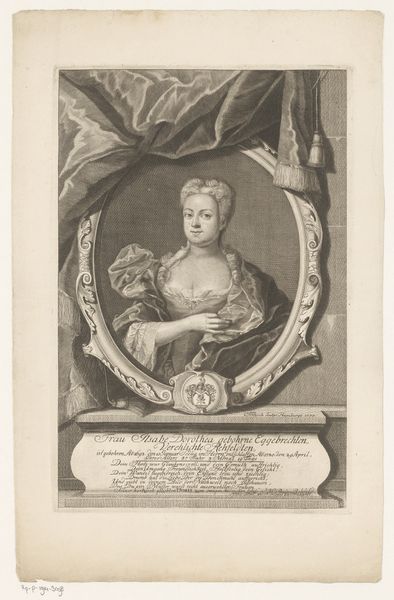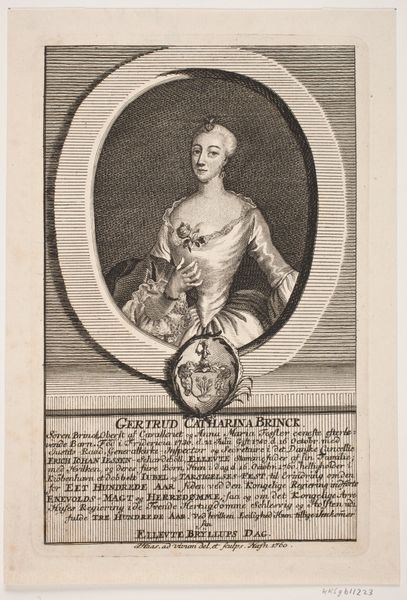
Portret van Sophia Antonia von Sachsen-Coburg-Saalfeld 1753
0:00
0:00
johannmartinbernigeroth
Rijksmuseum
ornament, print, engraving
#
portrait
#
ornament
#
baroque
# print
#
old engraving style
#
history-painting
#
academic-art
#
engraving
Dimensions: height 223 mm, width 171 mm
Copyright: Rijks Museum: Open Domain
Editor: We're looking at a print entitled "Portret van Sophia Antonia von Sachsen-Coburg-Saalfeld," created in 1753 by Johann Martin Bernigeroth. It's an engraving. It has a very stately feel; a portrait of nobility. What strikes you about it? Curator: As a historian, I immediately consider the political role such images played. Consider the context: This print wasn't simply decorative. It served as a visual representation of power, a tool for solidifying social hierarchies. How do you think the public viewed prints like this, widely circulated, of Duchess Sophia Antonia? Editor: I guess people saw it as reinforcing the idea that she and her family were in charge... maybe creating a sense of awe and respect? Were they all seeing this sort of portraiture, if it's circulated, or were some people left out of it? Curator: Precisely! Prints made these images more accessible than painted portraits, expanding the reach of aristocratic visual propaganda. Note the landscape in the background. It symbolizes the lands she governed, doesn't it? And observe how the text at the bottom, combined with the coat-of-arms, reinforce her lineage and titles. It’s a calculated performance of status, for those in the know, a statement of legitimacy, which, of course, prompts one to wonder, legitimacy for whom, and from whose perspective? Editor: I see what you mean! It's not just a picture; it's making a claim about her right to rule. It does make me think differently about how portraits were used as visual political communication at the time. Curator: Indeed. And the act of printing itself makes art democratic, even art about non-democratic power. The medium matters. Think about that!
Comments
No comments
Be the first to comment and join the conversation on the ultimate creative platform.
